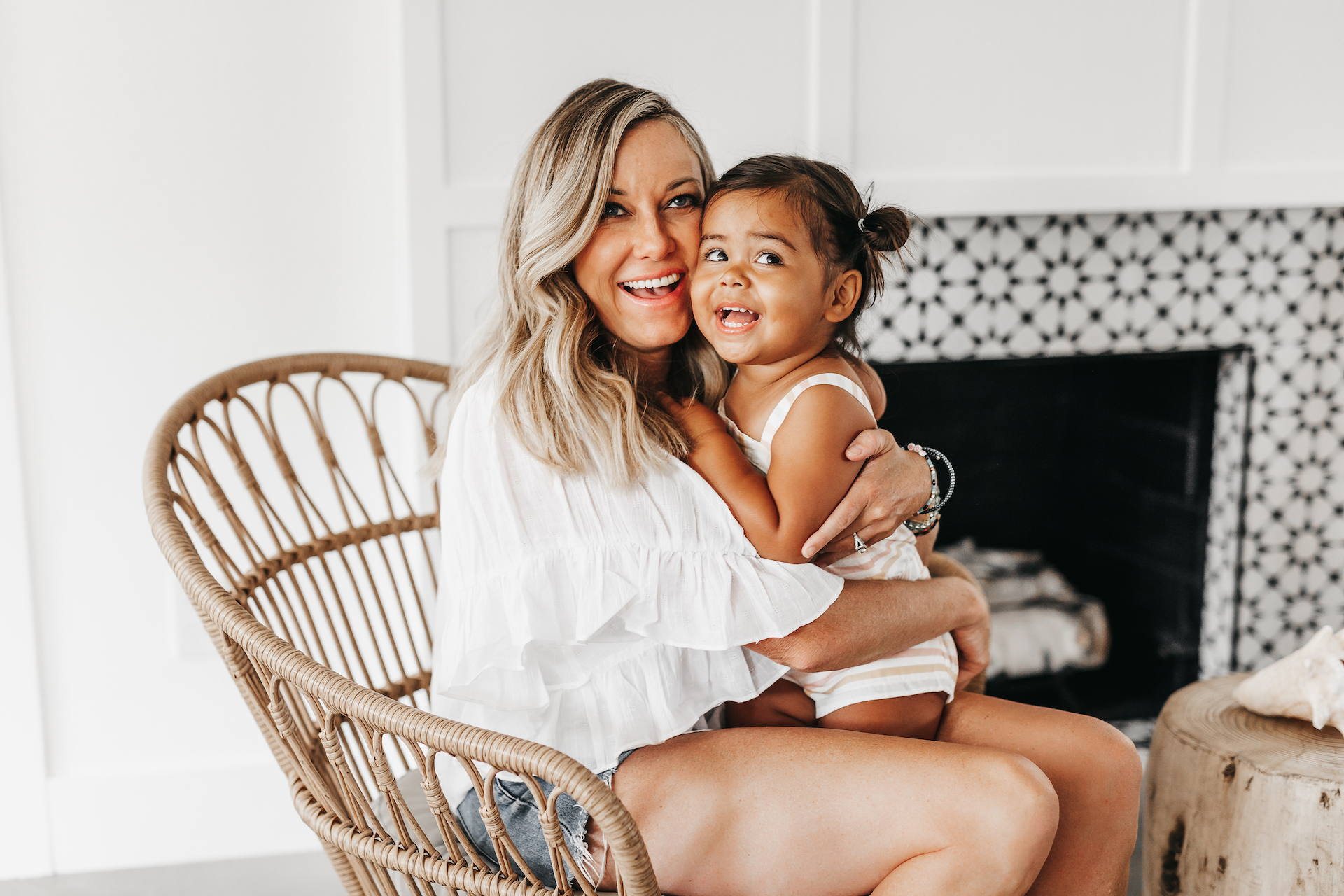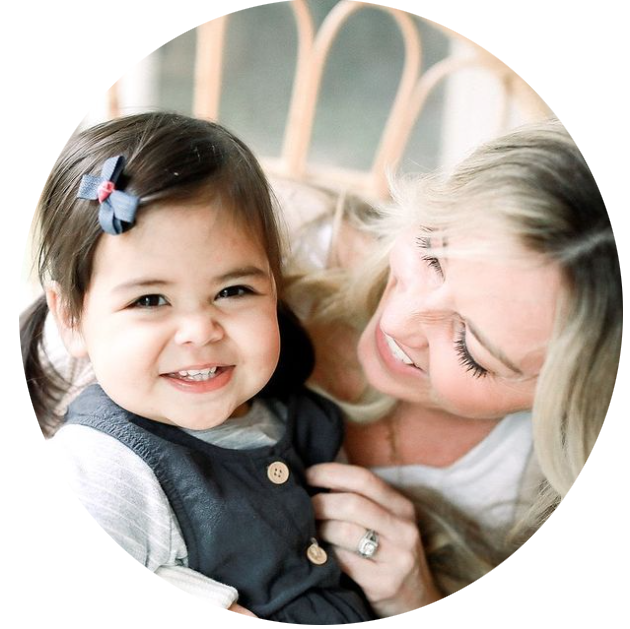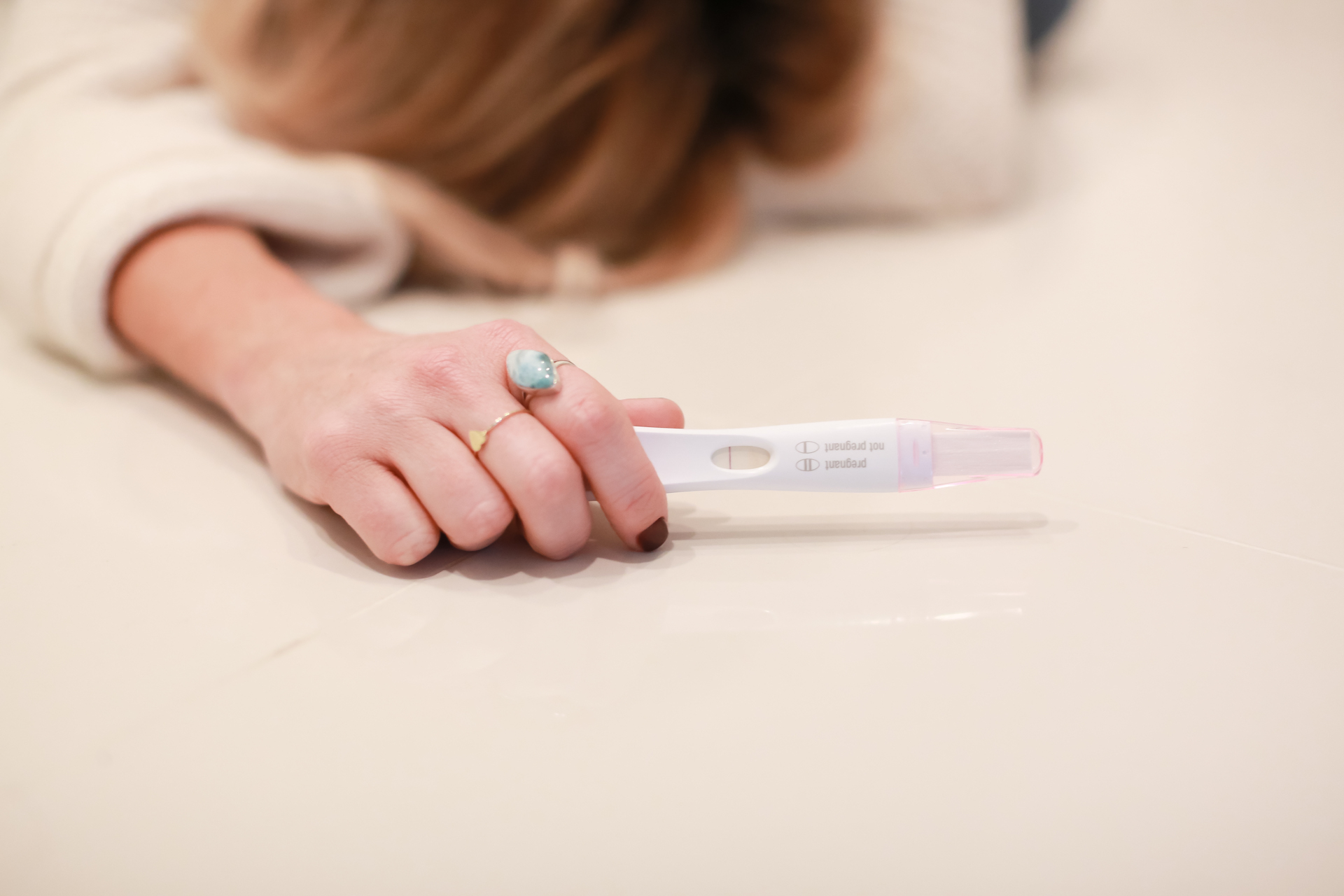7 Ways I Learned to Cope With Infertility Grief
If you’re struggling, know you don’t have to suffer alone. Here are 7 coping strategies that helped me through:
1. Feel Your Emotions
When it comes to coping with infertility, grief is very real. It is absolutely, without a doubt, grief that you are experiencing. There are a lot of parallels between losing a loved one and infertility grief, yet most people don’t even consider that infertility is grief - because the loss is invisible.
And I’m sure to you, it is anything but invisible. It is the first thing we think about when we wake up in the morning and the last thing we think about when we go to sleep.
The grief that comes with infertility isn’t a loss you can accept as gone, either. Many of us have been holding on to a vision of a family for years, and it’s not something we can just let go of, and with every opportunity to conceive, new hope arrives.
One negative pregnancy test can feel like your heart is being ripped out of your chest as you start the infertility grieving process all over again. We never get to fully grieve, because we dust our shoulders off, piece our hearts back together, and open that same heart up to the same thing that tore it up.
Take time to self-reflect and feel your emotions as they come. The next six steps share ways to help process and overcome the feelings of grief associated with infertility.
2. Talk About It
For the longest time, the only person I would open up to was my husband and I know this responsibility weighed on him heavily. He, too, was going through his own emotional battle, while trying to ease my pain and dry all my tears along the way. It wasn't until I started talking about my disease to others that I began to heal.
This process had multiple steps.
First, I told my therapist and my journal, then I opened up to a few friends I knew had struggled with infertility, then a few more close friends that I trusted, and then family, and eventually the whole world through my blog.
I started getting support from people that I desperately needed long ago. I started hearing personal infertility stories from close friends and family members that I had no idea about. And most importantly, I didn’t have to keep any more secrets about “why” we didn't have kids yet. I no longer had to hide my illness or cry in my car.
I was finally free.
If you can start by telling one person, and then another, it will get easier, and the grief will feel a little lighter, little by little.
3. Join a Support Group / Process Your Emotions
I highly recommend joining a support group, there is no other group of women out there that can validate your pain in the way someone who has been through it can.
Making space to experience painful emotions allows us to practice our resilience and grow.
You can also seek the help of an experienced infertility therapist to have a safe space to discuss and work through your emotions.
4. Practice Gratitude
Think of one thing you have to be grateful for and focus on that. Then think of another and another. Maybe it’s just the fact that you have a roof over your head, or that you are healthy. Start making a gratitude list and keep it handy for triggers. When you get hit by an unexpected pregnancy announcement you can immediately reference your list.
Gratitude has been scientifically proven to increase happiness, reduce stress and anxiety, improve sleep, and increase energy. It’s a practice that can truly change your life.

5. Give Yourself Grace
Remove any judgment of yourself. We must allow ourselves to grieve and go through the steps and not judge ourselves for it. Cut yourself some slack. Picture a woman who just lost her husband sitting in the front row of a wedding. You’d cut her slack if she was angry or sad, right? You’d forgive her if she got up and left in the middle of the ceremony, right?
Infertility grief is grief. Cut yourself the same slack as you would that woman.
It is incredibly important to feel the feelings of infertility grief. Burying them or avoiding them will just bottle them up to explode at a later date. Letting them out in a healthy way, little by little, can help better prepare you for triggers.
6. Know That You Will Survive Infertility
I will be honest, some days you will feel like you are dying. You will feel like this is the worst possible thing that could happen to you. You will feel like life is over.
Life isn’t fair, I know.
But, guess what? You aren’t dying. This isn’t the worst possible thing that could happen to you, and your life certainly isn’t over. Pain teaches us who we really are, and getting to that beautiful person deep down inside, means you are going to have to go through some really hard things first. But you can do hard things. You are a mother in the making. You are a warrior.
You will get through this, the pain will lessen, and the wounds will heal, but you can’t do it alone. Trust me I tried. I can honestly say that after all we have been through, all the pain, the financial debt, the lost friendships, and the deep emotional sadness, I still wouldn’t change a thing.
My child wouldn’t be the same person if I hadn’t experienced infertility, my marriage wouldn’t be as strong, and neither would I.
I survived infertility, and so will you.
7. Consider Alternative Paths to Parenthood
Starting the donor egg process can be emotionally and physically overwhelming. It took me and my husband about six months of pondering and discussing before we were willing to even consider exploring the idea. I’m not sure which was harder, deciding to use donor eggs or choosing the donor herself. It’s all really scary.
In this related blog, I share some things that have worked for me when working through grieving my genetics and coping with using donor eggs.

Want to hear more from Victoria? View more from her series on donor conception:
- Should I Use Donor Eggs? Will I Have Any Regrets?
- Will My Donor Egg Baby Look Like Me?
- Bonding and Attachment: A Letter to Intended Parents
 Written by Guest Author, Victoria Nino
Written by Guest Author, Victoria Nino
This blog post was written by Victoria Nino from @expectinganything. If you are struggling with how to deal with infertility, Victoria provides a welcoming and supportive online community on her Instagram and support groups on her website.
Victoria vulnerably shares her infertility grief experience in hopes of helping others who are in the midst of their journey grieving infertility. We are honored to partner with Victoria in our series on Donor Conception to address many of the emotions associated with using donor eggs or donated embryos.




